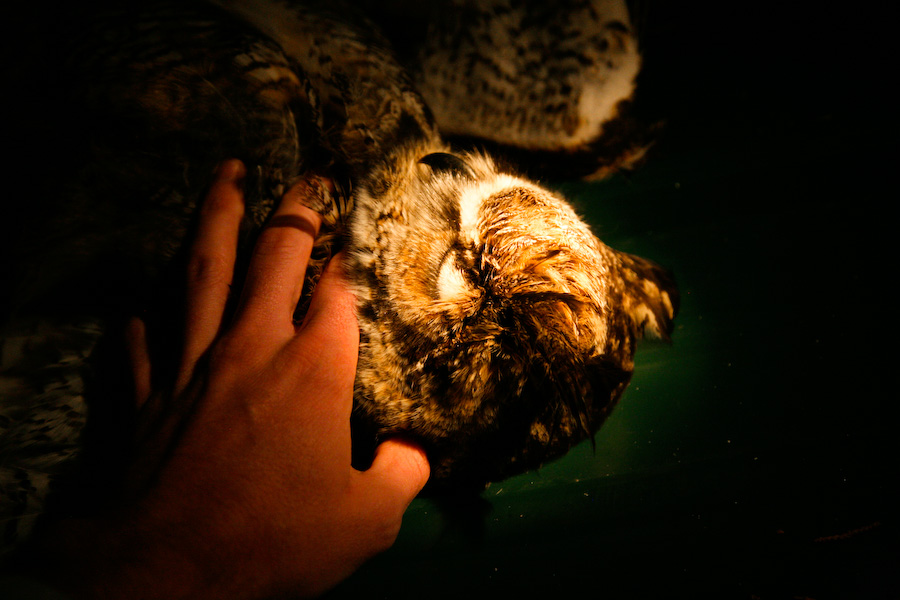
Great Horned Owl
Today a Great Horned Owl was found dead on the ground next to Jim's barn. Apparently it died of hunger and fell from a tree. Mother owls abandon their young in late August, and it can be hard for them to find food. You've got to be strong and you've got to be lucky, because the winter is very hard and it can be deadly, though it is usually not the winter but the fall that will kill you.
As Jim led me to his barn in the darkness to visit the dead owl, this all seemed very symbolic. For my first two months at Caldera there was a Great Horned Owl that lived in the tree above my cabin (I have since moved to a winterized cabin nearby). I first thought it was a Barn Owl, but a visiting birdwatcher saw it one night and told me that it was definitely a Great Horned Owl. He would screech a terrible scream that I learned to find beautiful, and when I hunted for him with my flashlight he would swoop down at me, his big white wings lit by my light, and then disappear silently into a taller tree.
My friend, Joanne, in New York, who knows about such things, insisted that the owl was my spirit animal, and she even gave me a book about spirit animals to explain exactly what their visits mean. The owl has been my most regular companion out here this fall, and we have seen each other many nights.
With just three more nights at Caldera, the timing of all this seemed very strange, and as I held the dead owl in my hand, weighing its light and starved body, thumbing its curved and sharp beak, curling its reptilian talons, extending its mechanical wings, and stroking its feathers — soft and designed for silence — I could not help but think that a part of me had fallen from the tree and died, too, and that now I would have to go on without it.
